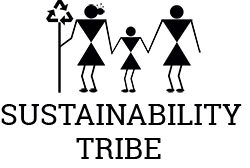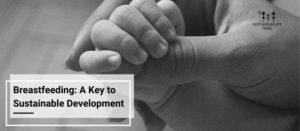BREASTFEEDING: A KEY TO SUSTAINABLE DEVELOPMENT
Tribe, every year world celebrates World Breastfeeding Week from 1st to 7th August. To encourage breastfeeding and improve the health of babies around the world, the World Health Organization (WHO), the United Nations International Children’s Emergency Fund (UNICEF) together with World Alliance for Breastfeeding Action commemorate this week since 1990.
However, socially, we can still notice stigma attached to breastfeeding and not everyone is comfortable talking about this topic, even though didn’t most of us were nourished this way during infancy? Personally, as part of my natural, and green parenting I preferred to breastfeed my son for 1.5 years. We never even bought infant formula milk, bottles, and I’m glad that I could avoid all the sterilization and sanitizing hassles around it. It was not a very easy journey at the start and there were great efforts on my part to overcome preliminary challenges and later keep going till 18 months. However, some pleasant nursing rooms in places like Dubai Mall added some comfort to my journey. Thanks to my special nursing covers, I even nursed my child in public places like planes, airports, restaurants at times. I personally feel from my experience, breastfeeding is a necessary and normal part of motherhood. However, looking at the number of people finding it weird and not so correct portrayal of it in popular culture confirms that we need more social awareness on this topic.
In this article, let’s attempt to normalize the discussion around breastfeeding, and let’s approach it from a sustainability angle.
BREASTFEEDING FOR HEALTH
The breastfeeding journey is different for every mother, some find it more challenging than others. It is definitely a personal decision of the mother. However, undeniably it’s the best nourishment for infants. World Health Organization says mother’s milk is the ideal food for infants. It’s safe, clean, provides essential nutrients required for a child’s growth and development. Moreover, breastmilk contains important antibodies and acts as a baby’s first and natural vaccine, protecting them from much common childhood illness by improving their immunity.
Mother too gets benefitted, breastfeeding may result in lower risks of cancers and several diseases including cardiovascular, osteoporosis, diabetes, etc.
Breastfeeding also has positive effects on the mother and child’s mental health. Through nursing mother and child develop a stronger bond. In children nourishment through lactation is linked to improved cognitive development including memory retention, enhanced social-emotional development. During nursing powerful hormones including oxytocin are released and help to improve the mother’s mental health. The results are a lower risk of postpartum depression, reduced anxiety, and stress. You can find further information and various researches are done on breastfeeding and perinatal mental health on the breastfeeding network website.
Breastfeeding is unarguably great for mother and child. However, with the help of breastfeeding, we can also make our planet healthier!
BREASTFEEDING & SUSTAINABLE DEVELOPMENT GOALS
Let’s look at how breastfeeding is linked to many of the Sustainable Development Goals (SDGs) as part of the UN 2030 Agenda for Sustainable Development.
According to The Lancet series, investment in improving breastfeeding practices around the world will help in achieving sustainable development goals.
SDG 1 No Poverty:
Breastfeeding is a natural and low-cost way of feeding babies and children. Everyone can afford it without burdening the household budget as compared to artificial formula milk. So clearly breastfeeding contributes to the reduction of poverty.

